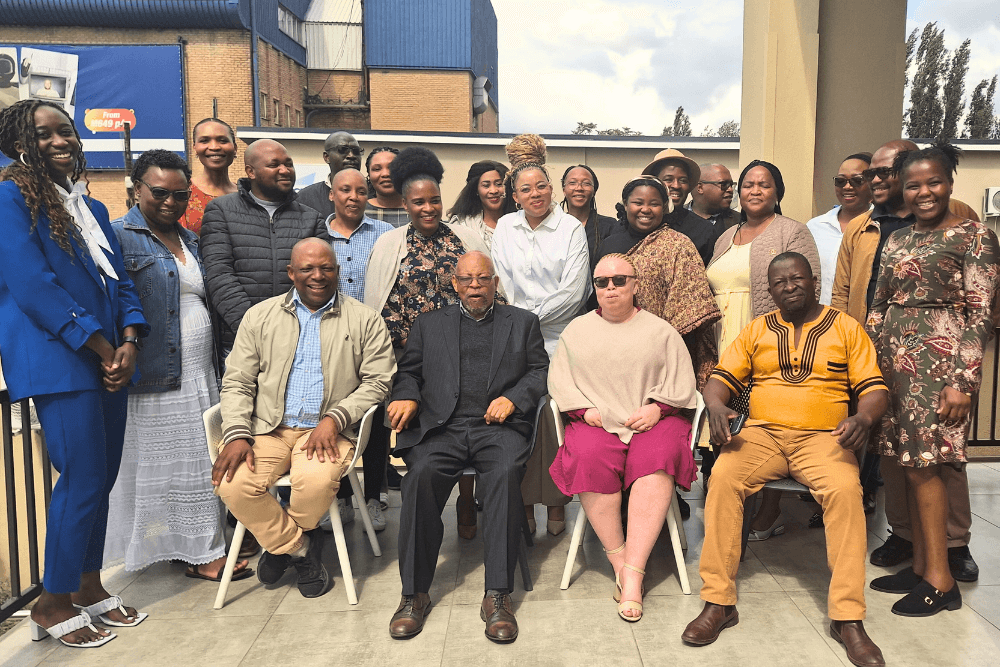
Lesotho: Magistrates and judges unpack their role in protecting and promoting the human rights of marginalized individuals and groups
On 11 and 12 October 2023, the International Commission of Jurists (ICJ), People’s Matrix Association and Seinoli Legal Centre (SLC) jointly held a workshop for magistrates and judges in Maseru, Lesotho’s capital. Drawing on ICJ’s 8 March Principles for a Human Rights-Based Approach to Criminal Law Proscribing Conduct Associated with Sex, Reproduction, Drug Use, HIV, Homelessness and Poverty, the workshop was aimed at enhancing the Lesotho judiciary’s ability to apply a human rights-based approach in the application and enforcement of domestic criminal law.
The central theme explored by participants throughout the workshop was the profoundly negative human rights impact of unjustified criminalization, especially for marginalized individuals and communities. At the workshop, the Acting Chief Justice of Lesotho, Tšeliso Monapathi, emphasized the importance of the judiciary as the last line of defence for ensuring the protection of human rights.
Participants at the workshop noted some positive legal developments in Lesotho that are consistent with international human rights law, including the repeal of vagrancy laws through the introduction of the 2010 Penal Code. Most recently, in October 2022, the High Court of Lesotho, sitting as a Constitutional Court, declared section 32(a)(vii) of the 2003 Sexual Offences Act unconstitutional. The Court ruled that the provision, which imposes the death penalty on HIV-infected persons who commit sexual offences, was unconstitutional to the extent that it violated the rights to equality before the law and equal protection of the law, freedom from discrimination, and freedom from inhuman treatment as guaranteed by the Lesotho Constitution. However, in June this year, in their joint submission to the UN Human Rights Committee, the ICJ, People’s Matrix and Seinoli Legal Centre noted with concern that the Sexual Offences Act left the common law offence of “sodomy” intact.
“Despite some progressive milestones in the protection and promotion of fundamental human rights and freedoms of all persons, it is deeply concerning that there remain a number of criminal laws that disproportionately impact sex workers, LGBTQI+ persons, those seeking sexual and reproductive health care services, such as abortion care, and other marginalized groups,” said Mosa Lestie, Programme Lawyer at Seinoli Legal Centre.
The participants, the majority of whom were magistrates, discussed measures the courts have employed to promote and protect the human rights of marginalized groups. This includes sensitization on the human rights of persons with disabilities, LGBTQI+ persons and other marginalized groups, particularly their right to access to justice and the implementation and continual development of court rules to ensure that all persons can participate in court proceedings on an equal basis as complainants, witnesses, accused persons or experts. For instance, in July 2023, the Lesotho National Federation hosted a training workshop with some magistrates and prosecutors on access to justice for persons with disabilities and the 2023 Disability Equity (Procedure) Rules.
Despite these efforts, participants expressed concern that limitations continue to exist in relation to: the provision of accommodations for accused and witnesses at court; worrying trends of discrimination within the wider criminal justice system, especially among the police. They also identified the need for ongoing human rights training for magistrates and other actors in the criminal justice system.
“The unjustified or arbitrary over-criminalization of conduct associated with LGBTQI+ individuals in Lesotho continues to result in discrimination and stigmatization. In turn, this has significantly impeded access to justice for the communities the People’s Matrix supports,” said Giselle Ratalane, Programme Manager at the People’s Matrix Association.
“As the ICJ’s 8 March Principles underscore, these criminal laws have discriminatory effects on marginalized groups and violate Lesotho’s obligations under international human rights law, including with respect to the rights to equality, non-discrimination, dignity, privacy, freedom of expression and more,” concluded Mulesa Lumina, ICJ Africa’s Legal and Communications Associate Officer.
Contact
Mulesa Lumina, Legal and Communications Associate Officer (Africa Regional Programme), e: mulesa.lumina@icj.org
Kaajal Ramjathan-Keogh, Director (Africa Regional Programme), e: kaajal.keogh@icj.org
Background
While Lesotho has made some strides in recognizing and safeguarding the human rights of all persons, including through the introduction of various laws and policies, certain conduct continues to be targeted by criminal laws notwithstanding the fact that under general principles of criminal law and international human rights law and standards, such conduct should not be criminalized in the first place.
As a State Party to a number of international human rights instruments, including the International Covenant on Civil and Political Rights (ICCPR), the African Charter on Human and Peoples’ Rights and the Protocol to the African Charter on Human and Peoples’ Rights on the Rights of Women in Africa, Lesotho must ensure that its criminal laws do not directly or indirectly discriminate against anyone on grounds prohibited by international human rights law.
The 8 March Principles for a Human Rights-Based Approach to Criminal Law Proscribing Conduct Associated with Sex, Reproduction, Drug Use, HIV, Homelessness and Poverty, recently published by the ICJ, offer a clear, accessible, and operational legal framework and practical legal guidance for a variety of stakeholders, including judges and magistrates, on the application of criminal law to conduct associated with consensual sexual activities, such as consensual same-sex sexual relations and sex work (Principles 16 and 17); the criminalization of sexual orientation, gender identity and gender expression (Principle 18); drug use (Principle 20); as well as homelessness and poverty (Principle 21). As stated in Principles 7 and 8, criminal law “must be interpreted consistently with international human rights law” and “…may not, on its face or as applied, in substance or in form, directly or indirectly discriminate on any, including multiple and intersecting, grounds prohibited by international human rights law”.




